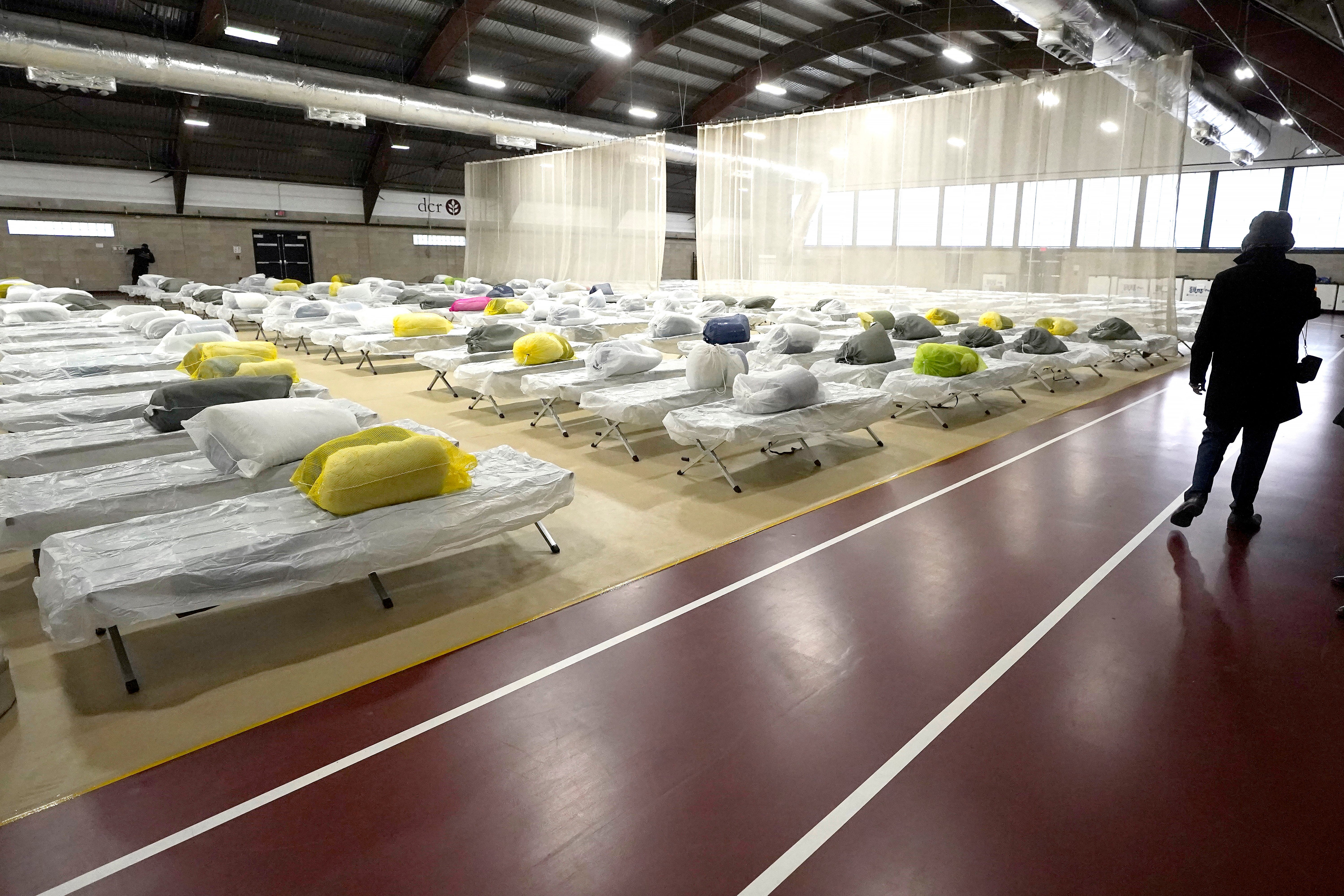Massachusetts issues tighter restrictions on access to homeless shelter system
Massachusetts Gov. Maura Healey has unveiled new restrictions on the state’s homeless family shelter programs

Massachusetts Gov. Maura Healey unveiled new restrictions on the state's homeless family shelter programs Tuesday.
Beginning Aug. 1, families who aren't prioritized for placement in emergency assistance shelters will be eligible to stay at overflow sites for just five days.
Healey said she was tightening restrictions on emergency assistance system eligibility because of the system's “continuing capacity constraints" and the need to protect its financial sustainability — in part due to the influx of migrants to the state.
Families will be prioritized for placement in emergency assistance shelters if they have been made homeless by a no-fault eviction or by sudden or unusual circumstances that were beyond their control, such as a flood or fire. They will also be prioritized if at least one family member is a veteran, Healey said.
Families will also continue to be prioritized if they have significant medical needs or newborn children, or are at risk of domestic violence, she said.
Families who aren't prioritized for placement in emergency assistance shelters will be eligible to stay at what the administration refers to as “temporary respite centers” where they can stay for only five days. Such families are currently eligible to stay for 30 days at overflow shelters and can apply to extend stays. As of Aug. 1, families who stay at a temporary respite center will be required to wait six months or more for placement in the emergency family shelter system.
“We have been saying for months now that the rapid growth of our Emergency Assistance shelter system is not sustainable. Massachusetts is out of shelter space, and we simply cannot afford the current size of this system," Healey said in a statement.
Amy Carnevale, who chairs the state Republican Party, said Healey “is finally implementing some of the measures we’ve been advocating.”
Earlier this year, Healey announced that families would have to recertify every month to remain in Massachusetts overflow shelter sites, in part by documenting their efforts to find a path out of the system, including by looking for housing or a job.
The change comes after the state barred homeless families from sleeping overnight at Logan International Airport in Boston.
Families on the emergency assistance shelter waitlist who had been sleeping at Logan have been offered transfers to the state’s safety-net system, including a Norfolk site that opened to accommodate up to 140 families.
Beginning June 1, the state also began limiting how long homeless families can stay in shelters to nine months. After that, families are eligible for up to two 90-day extensions.
The latest restrictions are another departure from the the state’s unique 1986 right-to-shelter law, which guaranteed homeless families shelter without restrictions.
Last year, Healey declared a state of emergency, capping shelter capacity at 7,500 families.
Healey said her administration has focused on getting immigrants work authorizations, English classes, and placed into jobs to give them the tools they need to move into stable housing.